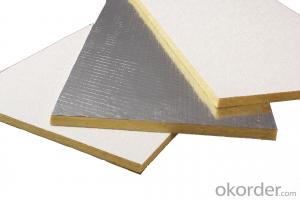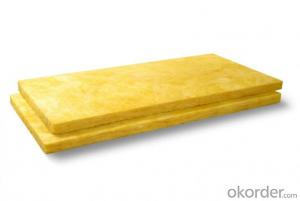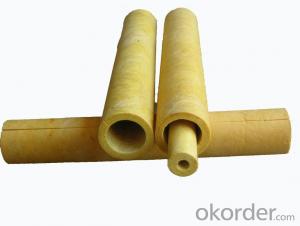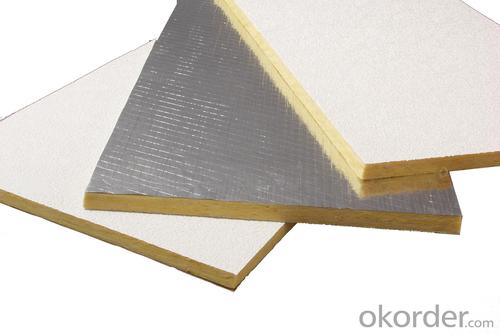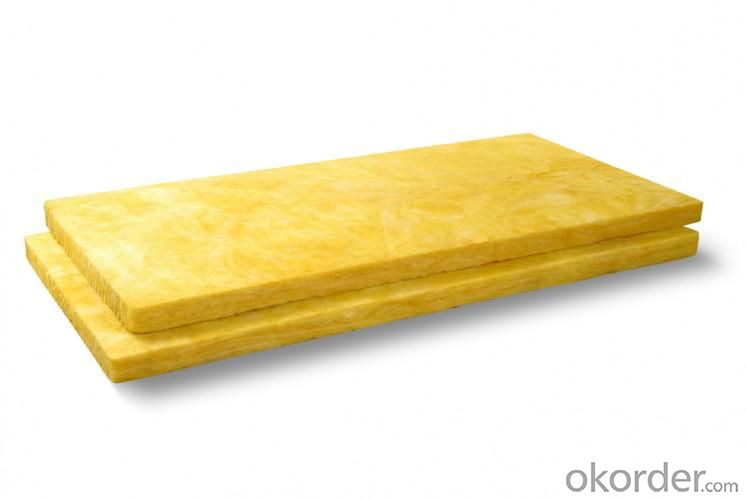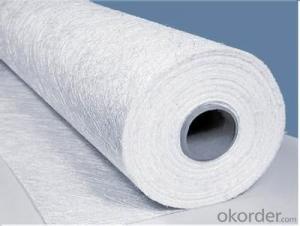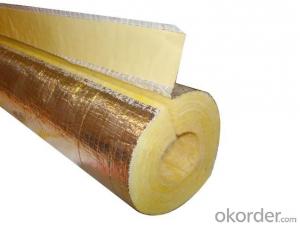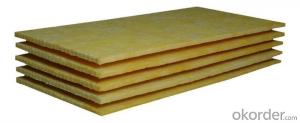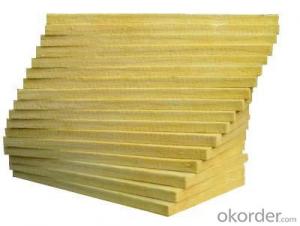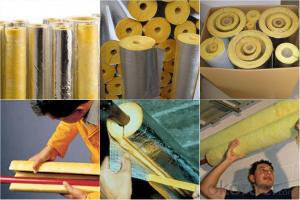Fiberglass Mat Tissue Thermal Insulation and Fireproof Thermal Conductivity Glass Wool Insulation Glass Wool
- Loading Port:
- Tianjin
- Payment Terms:
- TT OR LC
- Min Order Qty:
- 5000 m²
- Supply Capability:
- 20000 m²/month
OKorder Service Pledge
OKorder Financial Service
You Might Also Like
1.Description of Glass Wool Blanket:
Glass Wool Blanket complete glass wool production lines employing latestgeneration technology to manufacture boards, rolled blankets and pipes for residential and industrial thermal and acoustic insulation needs, in compliance with the
top international standards (EN, DIN, ASTM).
Its merit is better in shape, low density and volume, low in thermal conduction, better heat preservation and thermal insulation, fine sound absorption, corrosion-resistant and stable chemical property. Glass wool blanket, glass wool board, glass wool pipe, which made from glass wool, largely use in construction, chemical, electronic, electricity, metallurgy, energy industry and community with good performance in heat preservation, heat insulation, sound absorption.
2.Main features of Glass Wool Blanket:
d): acoustical property
The inside of glass wool is multiaperture, which enhance its absorption quality greatly and thus increase the comfort level of indoor environment.
e): structure quack-proof
Reedy fiber of glass wool lead to better performance in strength in structure, stretching resistance, anti-quack. NO phenomenon of drooping, scatter, collapse emerges in installation and long-term usage.
f): chemical property
Glass woo, with fine property in stable size, can withst and high temperature, thunder, rain, sun shining, acid and alkali and other human and natural factors.
3.Glass Wool Blanket Images:
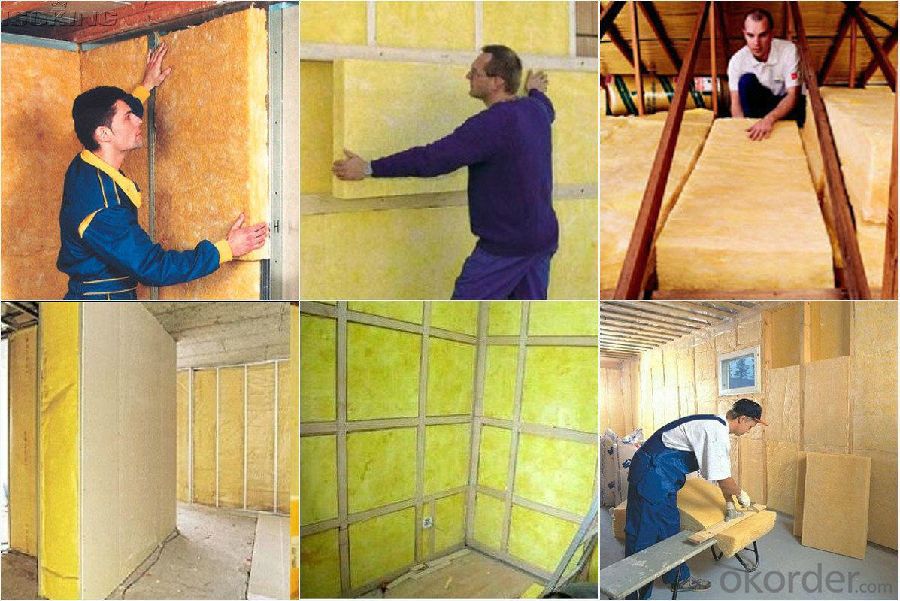
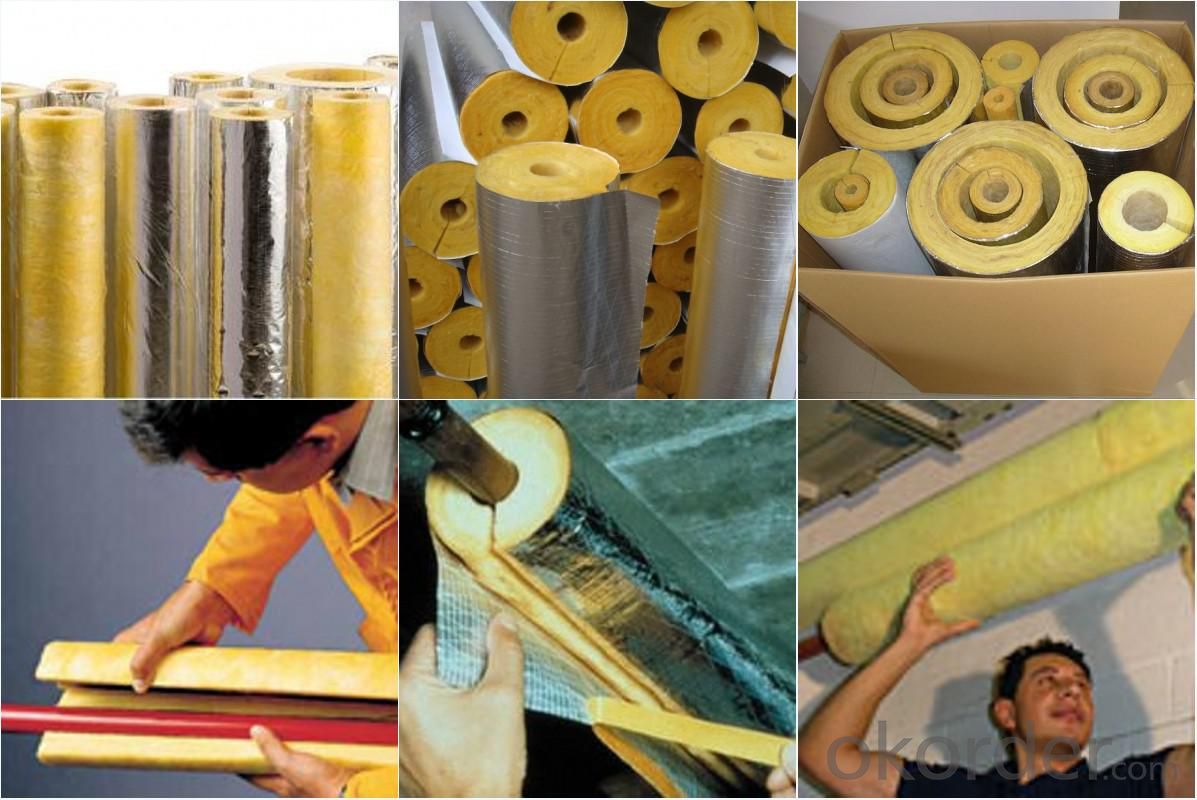
4. Glass Wool Insulation Blanket Technical Parameters:
Property | High/low temperature resistance, oil and fuel resistance, weathering resistance, O zone resistance etc. |
Shape | According to your requirement. |
Color | Any color is available ,according to your requirements. |
Material | NBR, CR, SBR, EPDM, IIR, NR, EP, Silicone, VITON etc. |
Hardness | 30-90ShoreA |
Delivery | In 10 days |
Packing | Plastic bag & carton box or according to your requirements. |
Application | Electronic field, industrial machine & equipment, house-hold appliance, telecommunication, automobile, medical equipment industry etc. |
5.FAQ
We have organized several common questions for our clients,may help you sincerely:
①How about your company?
A world class manufacturer & supplier of Glass Wool Blanket is one of the large scale professional investment casting production bases in China,consisting of both casting foundry forging and machining factory. Annually more than 8000 tons Precision casting and forging parts are exported to markets in Europe,America and Japan. OEM casting and forging service available according to customer’s requirement.
②How to guarantee the quality of the products?
We have established the international advanced quality management system every link from raw material to final product we have strict quality test; We resolutely put an end to unqualified products flowing into the market. At the same time, we will provide necessary follow-up service assurance.
- Q: How is fiberglass mat tissue used in the production of pipes and tanks?
- Due to its unique properties, fiberglass mat tissue is widely used in the manufacturing of pipes and tanks. This material is ideal for reinforcement and insulation purposes. By combining fine glass fibers with a binder, a thin, flexible, and porous material is created. In the production of pipes, fiberglass mat tissue serves as a reinforcement layer. It enhances the structural integrity and strength of the pipe. Typically, it is placed between multiple layers of resin, such as polyester or epoxy, during the manufacturing process. This reinforcement provides added strength and rigidity to the pipe, making it more resistant to external pressures, impact, and corrosion. Furthermore, fiberglass mat tissue improves the insulation properties of pipes. Its porous nature allows it to trap air within its structure, creating a layer of thermal insulation. This insulation helps maintain the temperature of the fluid or gas within the pipe. As a result, it reduces heat loss and energy consumption. Similarly, in the production of tanks, fiberglass mat tissue plays a crucial role in reinforcing and insulating the tank structure. It is used as a layer between the tank walls and the resin matrix, providing reinforcement and reducing the risk of structural failure. The tissue also acts as a thermal insulator, helping to maintain the desired temperature inside the tank. Overall, fiberglass mat tissue is an essential component in the manufacturing of pipes and tanks. Its reinforcement properties enhance structural integrity, while its insulation properties improve energy efficiency and temperature control. This makes fiberglass mat tissue a versatile and reliable material for various industries, including oil and gas, chemical processing, water treatment, and many others.
- Q: What is the impact resistance of fiberglass mat tissue?
- The impact resistance of fiberglass mat tissue is generally high due to the reinforcing properties of the fiberglass strands, which help to absorb and distribute impact forces.
- Q: Is fiberglass mat tissue suitable for marine repairs?
- Yes, fiberglass mat tissue is suitable for marine repairs. It is commonly used in boat and yacht repairs due to its excellent strength, durability, and resistance to water and corrosion. Additionally, fiberglass mat tissue is easy to work with and can be used for various applications such as hull, deck, and structural repairs in marine environments.
- Q: How does fiberglass mat tissue perform in terms of acoustic insulation?
- Fiberglass mat tissue performs exceptionally well in terms of acoustic insulation. Due to its unique composition of fine fibers, it effectively absorbs sound waves and reduces airborne noise transmission. The mat tissue's dense structure enhances its soundproofing abilities, making it an ideal choice for applications where noise control is critical. Additionally, fiberglass mat tissue has superior thermal insulation properties, which further contributes to its acoustic insulation performance. Overall, this material is highly effective in minimizing sound transmission and creating quieter and more peaceful environments.
- Q: Does fiberglass mat tissue provide good fire protection?
- No, fiberglass mat tissue does not provide good fire protection.
- Q: How does fiberglass mat tissue perform in terms of mold and mildew resistance?
- Fiberglass mat tissue generally performs well in terms of mold and mildew resistance. The material's non-porous nature and moisture resistance help inhibit the growth of mold and mildew. Additionally, fiberglass mat tissue is often treated with anti-fungal agents during the manufacturing process, further enhancing its resistance to mold and mildew. However, it is important to note that proper installation and maintenance are crucial to ensure optimal mold and mildew resistance.
- Q: How does fiberglass mat tissue enhance the strength of composite materials?
- Fiberglass mat tissue plays a crucial role in enhancing the strength of composite materials. It is a woven fabric made of thin fiberglass strands, which are randomly oriented and bonded together with a resin binder. This unique structure allows the fiberglass mat tissue to provide several key benefits to composite materials. Firstly, the random orientation of the fiberglass strands in the mat tissue helps distribute the stress and load more evenly across the composite material. This means that when a force is applied to the composite, the mat tissue prevents localized stress concentrations, which can lead to cracks or failure. By distributing the stress, the fiberglass mat tissue enhances the overall strength and durability of the composite material. Secondly, the resin binder used in the fiberglass mat tissue acts as a reinforcement and bonding agent. When the composite material is manufactured, the resin binder in the mat tissue infiltrates the fibers, creating a strong and cohesive structure. This not only improves the overall strength of the composite material but also enhances its resistance to impact and fatigue. Furthermore, the presence of the fiberglass strands in the mat tissue increases the stiffness of the composite material. The strands, when combined with the resin binder, create a rigid framework that adds structural integrity to the composite. This increased stiffness makes the material more resistant to deformation and improves its load-bearing capabilities. In addition to strength enhancement, fiberglass mat tissue also provides thermal and electrical insulation properties to composite materials. The fiberglass strands act as a barrier, reducing heat transfer and preventing electrical conductivity. This makes the composite material suitable for applications where insulation is required, such as in electrical enclosures or thermal insulation panels. Overall, fiberglass mat tissue plays a vital role in enhancing the strength of composite materials by distributing stress, reinforcing the structure, increasing stiffness, and providing additional insulation properties. Its random orientation, resin binder, and unique characteristics make it an indispensable component in the production of high-performance composites used in various industries, including aerospace, automotive, construction, and marine.
- Q: Can fiberglass mat tissue be used for repairing fiberglass bathtubs?
- Yes, fiberglass mat tissue can be used for repairing fiberglass bathtubs. It is commonly used as a reinforcement material in fiberglass repairs, providing added strength and durability to the repaired area. The tissue can be easily applied and works well for repairing cracks, chips, or other damage on fiberglass bathtubs.
- Q: What is the chemical resistance of fiberglass mat tissue?
- Fiberglass mat tissue has excellent chemical resistance due to its composition, which includes a high percentage of glass fibers. These fibers provide a barrier against various chemicals, making the fiberglass mat tissue highly resistant to corrosion and degradation when exposed to acids, alkalis, solvents, and other harsh chemicals.
- Q: Is fiberglass mat tissue suitable for automotive interiors?
- Automotive interiors can benefit from the use of fiberglass mat tissue. This versatile material is widely utilized in many industries, including automotive manufacturing. It possesses several advantages that make it appropriate for car interiors. To begin with, fiberglass mat tissue offers excellent insulation capabilities. It effectively reduces noise, vibration, and harshness (NVH) levels inside the vehicle cabin. This greatly enhances passenger comfort and the overall driving experience. Moreover, fiberglass mat tissue is lightweight and flexible, making it easy to install in different areas of the car's interior. It can be molded and shaped to fit various components like door panels, headliners, trunk liners, and floor carpets. Its flexibility also allows for seamless integration with other materials, such as sound-deadening substances, to further improve insulation and minimize vibrations. Additionally, fiberglass mat tissue exhibits resistance to heat, moisture, and chemicals commonly found in automotive environments. This renders it a durable and long-lasting material capable of withstanding the unique conditions inside a vehicle. It also resists the growth of mold and mildew, ensuring a clean and hygienic interior. Furthermore, fiberglass mat tissue can be easily coated or laminated with other materials to enhance its aesthetic appeal. It can be finished with various fabrics, vinyl, or leather to match the desired interior design and provide a luxurious feel. In conclusion, fiberglass mat tissue is a suitable material for automotive interiors due to its insulation properties, lightweight and flexible nature, durability, resistance to heat and moisture, and potential for aesthetic enhancements. Its utilization contributes to the creation of a comfortable, quiet, and visually pleasing cabin space for vehicle occupants.
Send your message to us
Fiberglass Mat Tissue Thermal Insulation and Fireproof Thermal Conductivity Glass Wool Insulation Glass Wool
- Loading Port:
- Tianjin
- Payment Terms:
- TT OR LC
- Min Order Qty:
- 5000 m²
- Supply Capability:
- 20000 m²/month
OKorder Service Pledge
OKorder Financial Service
Similar products
Hot products
Hot Searches
Related keywords
